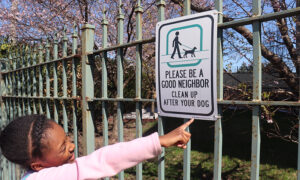Homeowners will often face HOA fines when they violate the community’s rules, but are these fines necessary? What are they for, and should homeowners pay them? In this article, we break down everything you need to know about these monetary penalties.
What Are HOA Fines?
Homeowners associations typically collect HOA fees to pay for maintenance and capital improvements. However, this is not the only obligation HOA members have. They also need to abide by the community’s rules and regulations. Going against community guidelines will result in enforcement action by the HOA board.
This is where HOA fines often come in. The association uses them to enforce rules and penalize any HOA member who violates the community guidelines. After all, people are often more inclined to obey the rules if disobedience means a monetary loss. Whether the rules concern lawn care, speed limits, or noise restrictions, homeowners are more likely to comply.
Can HOA Fine You?
 Are HOA fines enforceable? Can my HOA fine me legally? Homeowners new to HOA communities often feel shocked when they receive penalties for the first time. After all, people don’t expect to pay more when they’re already paying monthly fees.
Are HOA fines enforceable? Can my HOA fine me legally? Homeowners new to HOA communities often feel shocked when they receive penalties for the first time. After all, people don’t expect to pay more when they’re already paying monthly fees.
However, fines are entirely legal and enforceable. This is because homeowners agree to follow the community’s governing documents when purchasing a home. The governing documents give the HOA the authority to enforce these rules — and, with it, the power to impose fines for violations.
Additionally, most states allow HOAs to impose fines and penalties on homeowners. State law recognizes the power and authority of the HOA to enforce the rules.
Can HOA Fine You Without Proof?
The board cannot impose HOA violation penalties without justification. They can only levy fines if the homeowner violates a rule. That said, the burden of proof usually lies with the HOA. If the homeowner contests their claim, the HOA must provide evidence that the violation occurred.
However, proof can come in many different forms. The best kinds are photo evidence, security footage, or documentation of the offense. On the other hand, simple witness statements or testimonies may also be acceptable.
Can an HOA Fine You Without a Warning?
Most homeowners associations must issue a warning before imposing HOA fines for violations. The governing documents and state law often have provisions to protect homeowners from unfair penalties. These warnings or notices usually include details of the violation, a demand to rectify the issue, and a deadline to comply. They may also include details of a hearing if required.
How Much Are Reasonable Fines?
HOA fines cannot be unreasonable, but how fines are calculated ultimately depends on the board. Most HOA fines start at around $25. However, this could be enormous to some communities while being chump change to others. Hence, boards should consider their community members’ demographic and financial capabilities.
In addition, fines cannot be too large or too small. They must be calculated based on the gravity of the offense. For example, imposing a $100 fine for a minor noise violation may be unreasonable. On the other hand, fines cannot be so small that it simply becomes payment to commit the violation.
For instance, let’s say the HOA fine for painting house exteriors in the wrong color is only $25. In this case, most homeowners will pay the fee and paint their homes in various colors. This defeats the purpose of having architectural guidelines and an architectural review committee.
State law may also put certain limits on fines. For example, Florida law caps HOA fines at $100 per violation. However, the law also states that HOAs can levy fines for each day of an ongoing violation. As for the aggregate limit, HOA fines are capped at $1,000 unless the governing documents state otherwise.
What’s the Right Procedure for Imposing Fines?
Homeowners associations usually don’t jump to fines straight away. HOAs usually issue warning letters before they issue a fine. They will also give the homeowner time to correct the problem. Once corrected, they’ll leave the homeowner alone. The governing documents and state law may require these before the board can impose fines. At times, they may also need a hearing.
The board can typically issue fines if the violation persists even after providing notice and a hearing. However, they must document all the communications and be transparent when dealing with violations. This reduces the potential for legal disputes and prevents misunderstandings.
Moreover, they must follow the community’s HOA fine schedule, if any. Some states require this. For instance, Civil Code Section 5850 requires HOAs in California to adopt a schedule of violation fines if they have an HOA fine policy. The HOA must distribute this fine schedule to the members as part of the yearly policy statement.
What Happens If You Don’t Pay HOA Fines?
Do you have to pay hoa fines? Homeowner association fines are burdensome for everyone. However, paying them promptly is in the homeowner’s best interest. Failing to pay fines may lead to additional charges like interest or late fees. Some associations can also include fines as part of a lien on the homeowner’s property.
Furthermore, the HOA may take legal action against the homeowner for non-payment of fines. This is especially dangerous if the HOA already has a lien on the property. It could lead to foreclosure, forcing the homeowner to forfeit their home.
Why Are Fines Important?
 Fines may seem excessive for homeowners. However, they’re an essential part of rule enforcement. Without fines, homeowners simply take advantage of the community’s rules and commit violations whenever possible.
Fines may seem excessive for homeowners. However, they’re an essential part of rule enforcement. Without fines, homeowners simply take advantage of the community’s rules and commit violations whenever possible.
They may face other consequences, like the suspension of rights and privileges, but these penalties don’t carry the same weight as monetary penalties do.
As a result, the community can devolve into chaos. Mischievous homeowners won’t obey noise restrictions, parking rules, or pet restrictions. This can be a problem not only for the HOA board but also for their neighbors. The HOA won’t be able to accomplish its task of maintaining order and enforcing rules as effectively.
How to Fight HOA Fines
Homeowners who receive an unfair fine have the right to challenge the board. Here’s what they can do.
1. Read the Governing Documents
If a homeowner thinks they’re not violating any rule, it’s important to verify their innocence first. Read the governing documents carefully and familiarize yourself with all the rules. It’s best to read the specific provision or rule the board says you violated. Make sure you’re not in violation and obtain proof.
However, if you find out that you genuinely did violate the rule, there’s not much you can do to fight back. You may be able to appeal to the board to take away the fine if you agree to remedy the issue. On the other hand, if the board does not allow it, the best choice is to pay the fine and correct the violation. No good will come out of refusing to pay the fine.
2. Defend Your Case
Some governing documents may outline the procedure to challenge HOA fines. Homeowners should read their governing documents and follow the right procedures to avoid liability or further enforcement action. If the governing documents are silent, they can respond to the board’s notice by sending a letter to explain themselves.
Sometimes, the board will allow homeowners to attend a hearing to explain themselves. Homeowners should take this opportunity to defend their case. Bring all the documentation and evidence you can to strengthen your position. The board may close the case if you prove your innocence. They may also make an exception if you violated the rules because of emergencies or exceptional circumstances.
HOA Fines Keeping the Community in Line
Homeowners might think HOA fines are annoying or even malicious. However, they’re often a necessary evil. Without them, HOA boards won’t be able to enforce the rules or keep their community in line. The community will eventually be ineffective at maintaining common areas and property values.
Clark Simson Miller is an industry-leading HOA management company catering to condominiums and homeowners associations. Call us now at 865.315.7505 or contact us online to learn more about us!
RELATED ARTICLES:
- Buckle Up: Possible Huge HOA Fees Increase In 2024
- HOA Bank Reconciliation: How Can Your HOA Do This?
- What Is A HOA Demand Fee? How Does This Affect Selling A Home?

